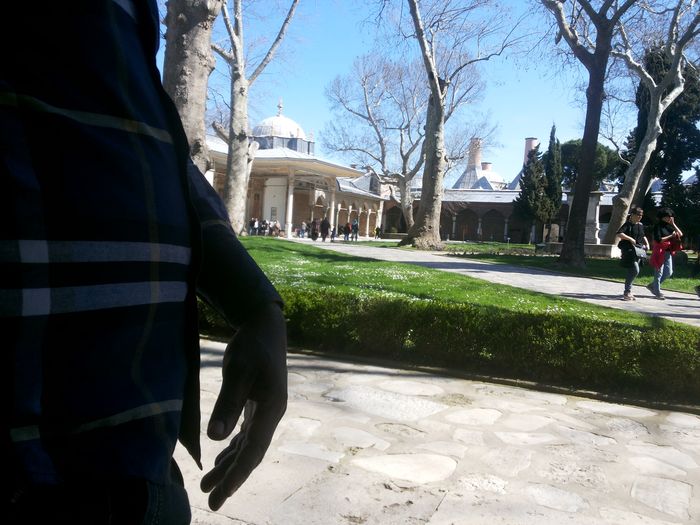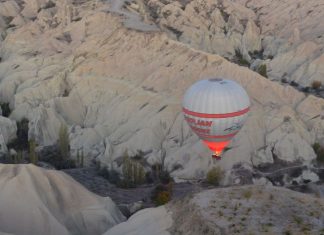Van Lake – Placid and solemn, spread out bet ween the mountains, more a sea than a lake, the clouds just brush its surface. These waters are witness to time eternal, a millennial observer of the region and its history…
Many tourists
“So many tourists used to come here that the hotels couldnt accommodate them all. Beds would be set up in lobbies, homes would be turned into guest houses, and some hotel staff would even invite guests to stay at their own homes” Every citizen of Van, over the age of 35, starts their recolection of the “Glorious Paste” with these words. Not so long ago, only 20 years, as many as 150,000 tourists visited the area every year, and tales of this fairy tale period are passed on to new generations.
Van Lake – Then, capsized by terrorism, life in Van and the surrounding region was pushed into a dark-age. For years Van became the silent heart of an “off limits” area for domestic and foreign tourists. Now, many years later, the lake and region have become safe once again, and tourists; (todays 20-somethings who have listened to the travellers tales of their elders) have begun to appear again.
But, even though the 15 000 tourists who visited this year are a drop in the ocean when compared to years past, they brought great hope to the region. There is joy that tourists are once again wandering the citys streets; filling the hotels and visiting the shops and ruins. Happily, many Turks are included in the swell of tourists. With sights to make postcards lacklustre and enough historical sites to exhaust historians, the Van region deserves even more interest. Lets wish the province a speedy return to the status it deserves and move on to reflect on the bright blue waters of Lake Van and its surrounding countryside.
Evening at Van Castle…
Van, known in ancient times as “Tuspa ”, has a history stretching back some 7 000 years; beginning with the Hurri and then Urartu peoples. Developed great civilisations which left countless gifts of history. Without doubt the most magnificent of these is Tuspa or Van Castle built in 855 BC by order of the Urartu King Sardon I. It holds the first written Urartian document; engraved in Assyrian, on the Madir Bulwark and describing the construction of the fortress. Built of limestone rock and covering 1,800 metres, the castle was restored during the Ottoman period.
Another of the Urartian wonders are the still operable water channels, known as Samran. Known to be Urartus administrative and entertainment centre, (iavu§tepe (Sardonihinli) is located 24 kilometres outside the city. If you visit the site, we re-commend that you meet Mehmet Kusman, custodian for 38 years, at 63 years old and with only a middle school education, Kusman can read and write cuneiform as if it was his mother tongue. Also, don £ pass up the chance of a guided tour, enriched with interesting tales, from one of Kusmans sons, Ensara (20) or Ersin (17).
Rising above the Hosap River, the Hosap Castle is known to be an Urartian, bit was given a new form by the Ottomans in the 17th century. The castle takes your breath away with its cylindrical shape and birds-eye view. The Seven Churches. Old Vans Husrev Pasa, Kaya Ceiebi, the Mosques of Suleyman Khan, the Van Muse-um, mausoleums, caravanserais and bridges built by the Urartians, the Seljuks and the Ottomans, pile historical sites, each more splendid than the other, on top of each other.
A sea and 400 kilometres of coastline…
With a surface area of 3 765 square kilometres, a width of 125 kilometres, a length of 60 kilometres and a coastline of 400 ki-lometres, Lake Van really deserves to be called a sea rather than a lake. Lake Vans islands, coastline and spotless beaches remind you of the sea. A modern highway skirts the edges of the lake from Van in the east, to Bitiis in the west, and takes you through beautiful coastal countryside. The Lakes two largest islands, Akdamar and (Jarpanak, with their natural beauty and churches, are popular with visitors. To the south-west of Van. past the coastal hotels and motels in Edremit, you arrive in Geras County.
From here you can board a motorboat to Akdamar and enjoy yourself on the trip. The intricate stone carvings of Akdamar Church, on Akdamar Island, dazzle the eye. Dating from the 1 Oth century, it is a place of pilgrimage for Armenians. The Armenian church on Carpanak Island dates from the 9th century, and the islands charm is added to by the large migration of birds during the Summer. At this time, it becomes a bird watchers paradise.
Make sure not to miss the historical Seljuk graves around the Halime Hatun Dome in Gevas (if Seljuk graves are of special in-terest, you should visit the spectacular grave at Ahlat). During the Summer, you can swim, sunbathe or have a picnic on Edremit and Gevass beautiful beaches.
The road through Gevas occasionally weaves between the mountains, and you pass into the province of Bitlis. One of the most important counties of Bitlis, Tatvan, is sure to be a favorite for tourists, and if you wish to enjoy a trip on the water, just jump onto one of the ferries for a pleasant six hour trip across the lake from Tatvan to Van.
Read More about Beglik Tash Tour
![image-86[2]](https://universal.doholidays.com/wp-content/uploads/2017/03/image-862-1.jpg)







